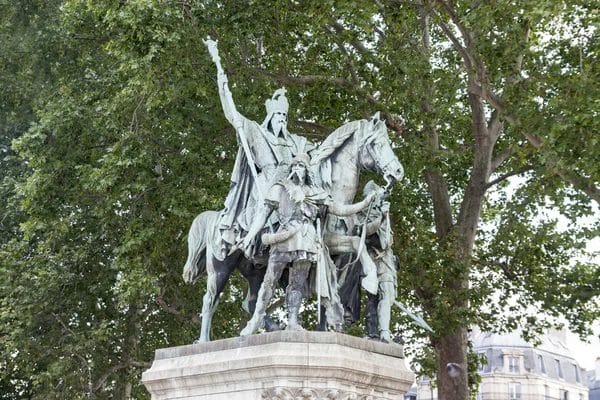Charlemagne was a ruler in Europe during the eighth and ninth centuries who played a key role in the development of Western civilization. Born in 747 to Pippin the Short, he became king of the Franks in 768 and ruler of the Holy Roman Empire in 800. Charlemagne was a successful military leader and was able to expand his empire across Europe, taking control of areas such as Italy, Germany and part of Spain.
Charlemagne was known for his contributions to education and the arts during his reign. He established schools and promoted the arts and learning throughout his empire. This led to the development of the Carolingian Renaissance, which was a period of cultural and intellectual revitalization, and established Latin as the dominant language in Europe. Charlemagne also supported the spread of Christianity and is known for his success in converting many people to Christianity.

One of Charlemagne’s significant achievements was the creation of the Holy Roman Empire, which was the first empire in Western Europe since the fall of the Roman Empire. He was crowned emperor by Pope Leo III in 800, which emphasized the close relationship between the papacy and the empire. The formation of the Holy Roman Empire led to the construction of a strong centralized government that led to a sense of stability in Europe for centuries.
While Charlemagne was known for his positive contributions, he was also a ruthless leader. He believed in expansion through war and conquered many territories through force. He was known for forcing conquered peoples to convert to Christianity and executing those who refused. This created a legacy of violence and oppression that overshadowed his achievements for many years.









